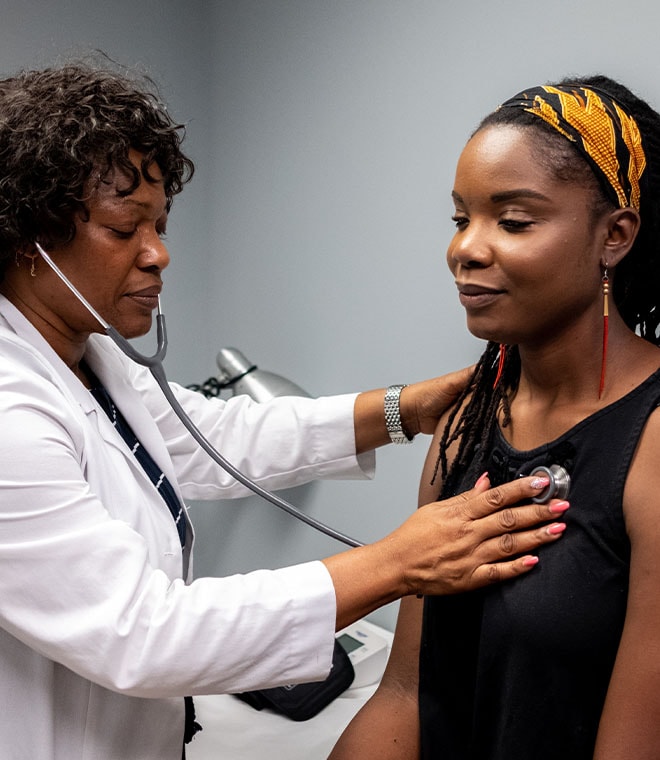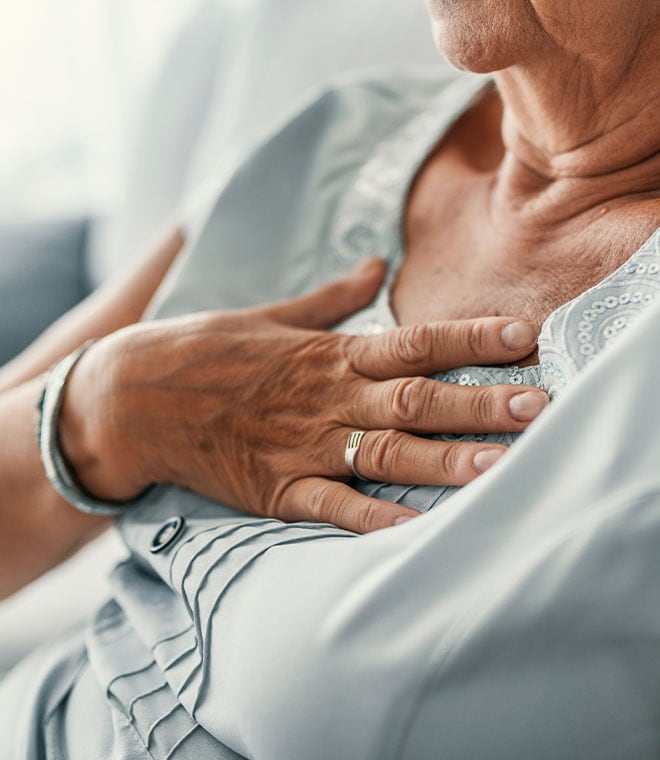Health
What are the signs and symptoms of AFib?
By Keyur Mavani, MD, Fellow of the American College of Cardiology, FACP Jun 17, 2025 • 4 min
Atrial fibrillation, or AFib, happens when the left upper chamber of the heart beats irregularly. It’s the most common form of heart arrhythmia. While it’s possible to have AFib and not know it, the condition can cause symptoms you may notice. If you experience any of the following, see your healthcare provider:
1. Fatigue: AFib can interfere with the heart’s ability to pump oxygen-rich blood efficiently. When the body suffers from a lack of oxygen, a person may develop extreme fatigue that interferes with daily activities. Fatigue is the most common symptom of atrial fibrillation.
2. Heart palpitations: Some people perceive the sensation of an irregular heartbeat as palpitations. Felt in the chest, palpitations may feel like a fluttering, banging, racing or pounding. It may also feel like the heart is skipping a beat.
3. Difficulty breathing: The abnormal activity of the left upper chamber of the heart can cause blood to back up to the lungs. As fluid accumulates, it may become difficult to breathe, especially during physical activity or when lying on your back. People with AFib may also breathe heavily or noisily while sleeping. You may feel heaviness in the chest or have trouble catching your breath.
4. Chest pain: When AFib reduces the amount of blood that reaches the heart muscle, chest pain may occur. Healthcare providers often refer to this symptom as angina.
5. Dizziness: Reduced blood flow to the brain due to AFib can cause dizziness. This symptom can increase the risk of fall injuries and make driving and operating heavy machinery dangerous.
6. Low blood pressure: With AFib, the heart’s inefficient pumping can cause blood pressure levels to decrease. Healthcare providers typically define a blood pressure of less than 90/60 mm Hg as low blood pressure, or hypotension.
7. Fainting: Both reduced blood flow to the brain and low blood pressure associated with AFib can cause fainting, especially when standing up rapidly. Although less common than other symptoms, fainting poses serious health risks for accidental injuries.
8. Difficulty exercising: Individuals who have AFib may find it difficult to exercise. The condition can cause you to become tired or winded quickly during physical activity.
9. Sweating: An increase in perspiration may occur due to AFib. Some people with the condition experience night sweats, which can be severe enough to leave bedding and clothing soaked in the morning. However, this is a rare occurrence.
10. Anxiety: In some cases, feelings of anxiety accompany shortness of breath in people with AFib. The condition can cause you to feel anxious upon waking up in the morning. It can also cause you to feel anxious suddenly while resting or sitting during the daytime.
11. Blood pressure machine error: You may see your blood pressure machine showing an error or an irregular heartbeat sign. You may also find your blood pressure highly variable on the machine. Sometimes, pulse oximeters indicate a high heart rate, or they may not be able to detect a heart rate at all.
Updated June 2025.
Sources:
- https://www.cdc.gov/heart-disease/about/atrial-fibrillation.html
- https://medlineplus.gov/atrialfibrillation.html
- https://www.nhlbi.nih.gov/health/atrial-fibrillation/symptoms
- https://www.nhlbi.nih.gov/health/low-blood-pressure
- https://www.hopkinsmedicine.org/health/conditions-and-diseases/atrial-fibrillation
- https://www.hopkinsmedicine.org/health/conditions-and-diseases/atrial-fibrillation/afib-symptoms
- https://www.mayoclinic.org/diseases-conditions/atrial-fibrillation/symptoms-causes/syc-20350624
- https://www.mayoclinic.org/diseases-conditions/dizziness/symptoms-causes/syc-20371787
- https://www.mayoclinic.org/symptoms/night-sweats/basics/definition/sym-20050768
- https://www.heart.org/en/health-topics/atrial-fibrillation/what-are-the-symptoms-of-atrial-fibrillation-afib-or-af
- https://www.heart.org/en/health-topics/atrial-fibrillation/why-atrial-fibrillation-af-or-afib-matters
- https://www.heart.org/en/health-topics/arrhythmia/symptoms-diagnosis--monitoring-of-arrhythmia/syncope-fainting
- https://www.heart.org/en/health-topics/high-blood-pressure/the-facts-about-high-blood-pressure/low-blood-pressure-when-blood-pressure-is-too-low




